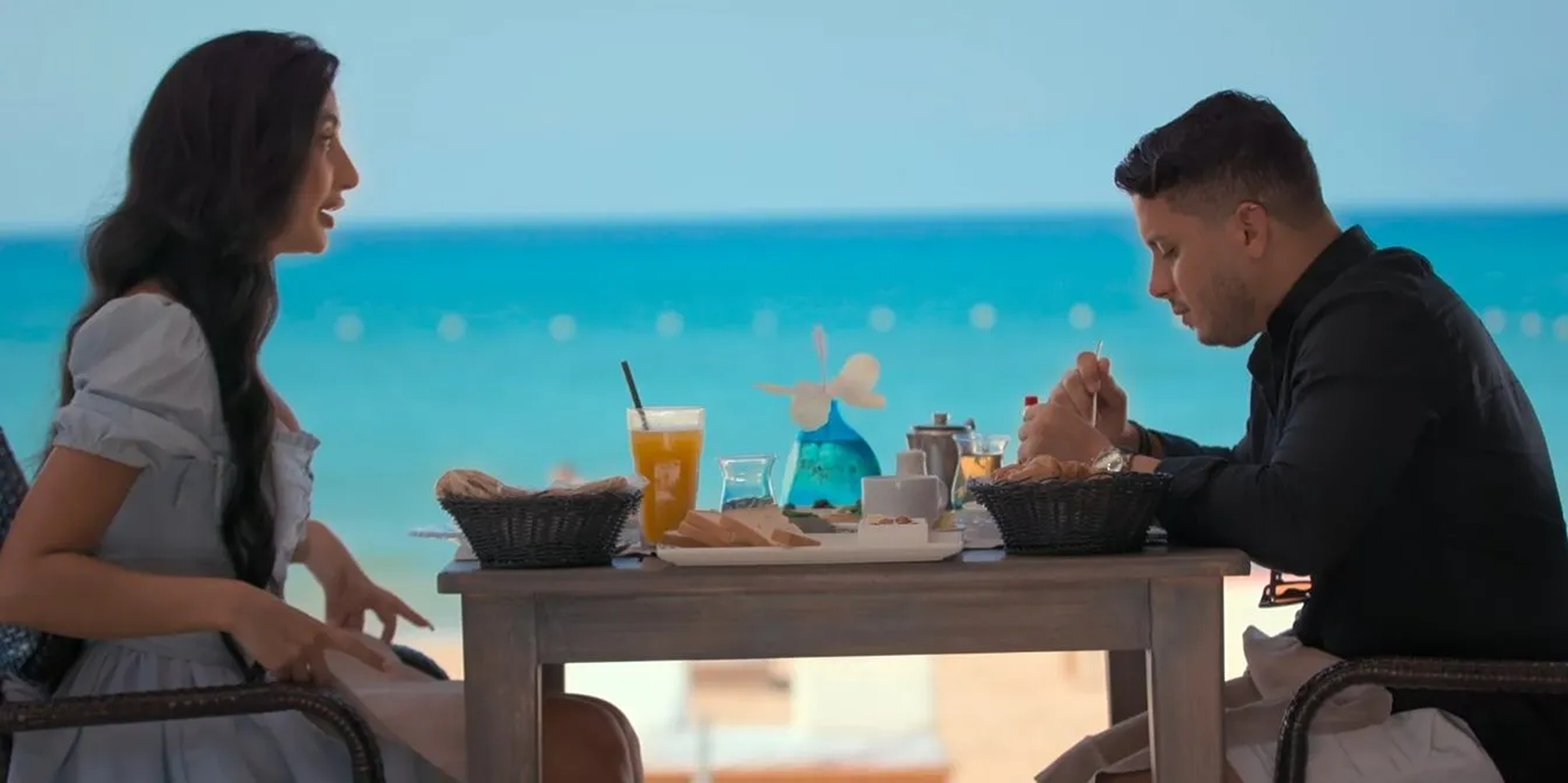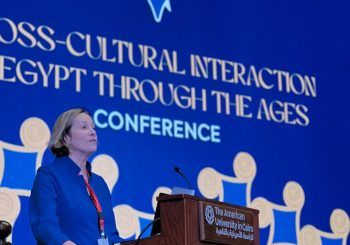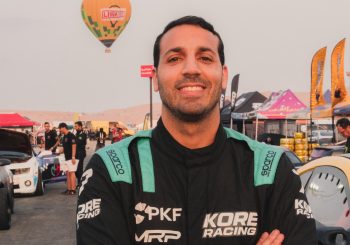Over the past few weeks, you’ve most probably heard the viral TikTok sound: ‘I don’t do coffee dates, I don’t do walking dates, I don’t do last-minute dates. I have my standards.’
This line, which was said by Nour El Haj in the first season of Netflix’s reality television series, Love Is Blind, Habibi (2024), has taken on a life of its own, becoming an internet meme and an expression to describe and label the way Arab women act.
This is not the first time, however, that a meme like this has went viral. A few months ago, the TikTok sound ‘I’m looking for a man in finance, 6’5″, blue eyes…’ took the internet by storm. This 20-second clip alone garnered over 38 million views, and even though it was only meant to be satirical, many women took it as an opportunity to complain about dating app fatigue.
It might just seem like another viral TikTok trend, but there is also so much more to Nour’s line than what meets the eye. Her message struck a chord with a new generation of women who have voiced their frustrations with dating apps and the overall dating scene. It also comes at a time when many women are feeling stressed about their financial insecurity in today’s economy as well.
This is why the first season of Love Is Blind, Habibi (2024) feels so timely and relevant right now. It comes at a time where we are seeing a growing global trend toward traditional values and the ‘tradwife’ archetype, often represented by influencers like Nara Smith. In a region where tradition runs deep, the series explores the potential toxicity that can arise from these old-fashioned ideals, while still valuing family and culture.
As the first season wraps up, below are three key lessons we learned about traditional and modern love. The big overarching theme is: how far is too far when it comes to traditional values? And how has modern dating turned love into a game, ruining the magic and seriousness of it?
Traditional When Convenient?
Some people pick and choose which traditions they follow, even if they don’t always live a traditional lifestyle. Set in the UAE, where many people embrace a more Western lifestyle, the show looks into how traditional values can often get twisted to fit the person’s own needs.
A good example of this is Simo Nasrallah, a 34-year-old Moroccan man on the show. He usually talks about the importance of Arab men providing for and respecting women, but his actions often tell a different story. He not only abruptly ended his relationship with Hajar Asli without providing her with any closure, but he also constantly criticized her liberal lifestyle, even though he admitted to not always being traditional himself.
Many of the men on the show also expressed extreme jealousy, often to control their partners. Yet at the same time, they objected to being the sole providers for their partners, even promising early on that they would not date women who were financially dependent.
The irony of the show is that, despite being a modern dating experiment, where singles go on a series of blind dates, some contestants still held onto traditional beliefs about women’s roles. The most famous case being Ammar Zam, a 32-year-old Syrian, who could not understand Karma Ben Messaoud’s passion for acting. Even though he was open to finding love through a modern dating process, which is often unconventional in Arab culture, he could not extend that same openness to other aspects of Karma’s life.
While people focus on the easy parts of modern dating, like swiping and texting, they often ignore the harder parts, like respecting someone’s lifestyle and identity. Ammar and Karma’s relationship reflects this trend; it was built on the superficial aspects of a blind date, bypassing the deeper connections that come from truly understanding Karma’s passions and interests.
Family Still Matters
Modern love can find its place within traditional family customs, even if it might seem too strange and unconventional at first. A great example of this is the relationship between Safa Al Juboori and Mohammad Kiswani, proving that there should not always be a clash between the two lifestyles, and that a real couple can find ways to reach a common understanding.
Safa, a 37-year-old Iraqi financial manager in the energy sector, is both career-driven and passionate about travel. Yet this does not get in the way of her traditional values, as she deeply values her family’s traditions, always emphasizing that “family comes first.” Even though she met Mohammad before her family knew him, she still prioritized their approval before anything else.
Her story also shows that being traditional does not always have to have a negative connotation; it can be about respecting family values while also embracing modern love.
There can also still be room for more understanding of parents’ initial objections, especially since they didn’t grow up in the same modern dating environment. For instance, Asma Sami and Khatab Hindi faced challenges because Asma’s parents struggled to understand her experiences, but this did not stop Khatab from making a genuine effort to connect with her parents and honor their traditions.
While navigating family rejections can be tough, it doesn’t always mean the end of the journey. There can still be opportunities for conversations, understanding and growth.
The Pitfalls of Modern Dating
Modern dating has turned love into a game with winners and losers, yet this can leave some people feeling isolated, especially those who struggle to open up due to past hurts, like Karim Ibrahim, a 33-year-old businessman and executive director.
While he felt a connection with several women, he could not fully open up. But it is important to remember that dating isn’t a competition; it is okay to take your time and not feel pressured to win, particularly when making a choice about marriage.
Social media and online dating have made it easier than ever to connect with people, but this abundance of choice can create unrealistic expectations. While it is extremely important to have standards and to share similar values, it is equally important to be realistic and see the humanity in others. Asma and Khatab’s relationship is a good example of this case, as though she initially rejected him based on his body weight and appearance, she later realized she should give him a chance.
The show highlighted the big difference between the fantasy world of the pods and the real world. While the pods are all about instant connections and superficial attraction, real relationships take work, compromise, and understanding, which many of the couples on the show were not prepared for.







Comments (0)